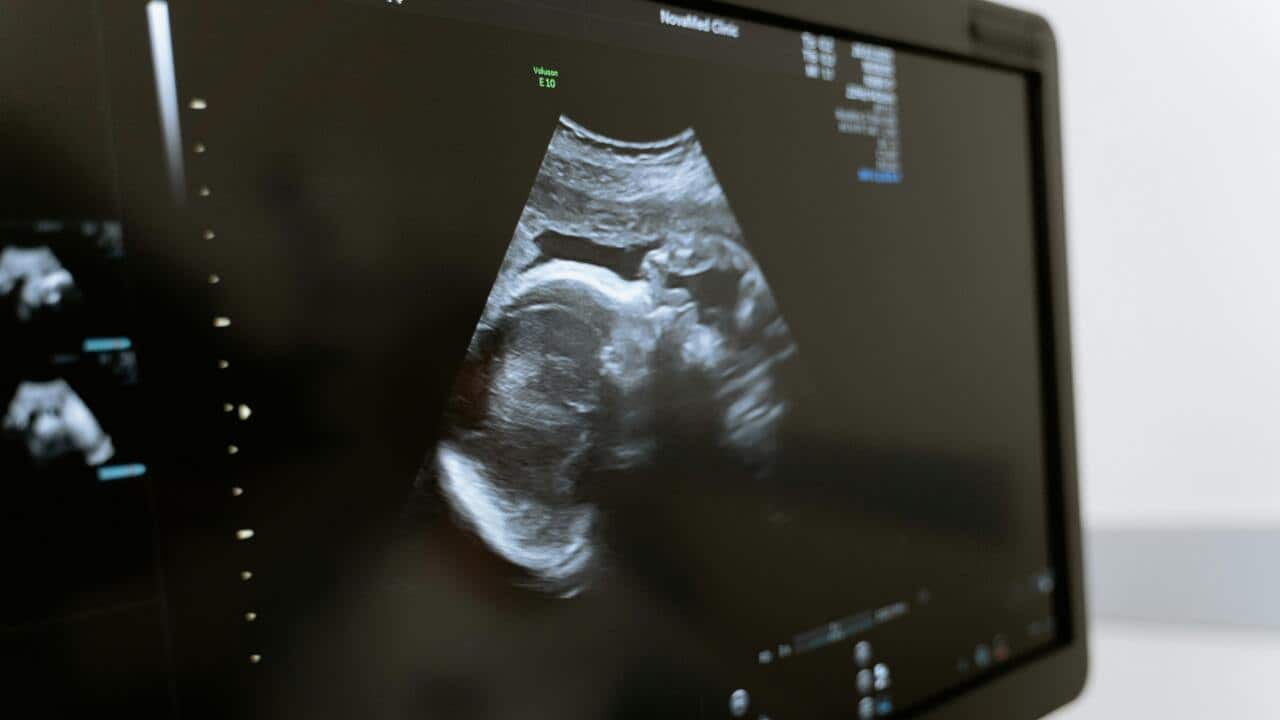The NSW government has pledged support for all the recommendations of a state inquiry into birth trauma but mothers and advocates say they are disappointed by a lack of commitment to midwifery-led continuity of care.
On Thursday, NSW Health Minister Ryan Park made a historic apology to any woman who had not received the required high standard of care as the state government accepted all recommendations from the final report of the Birth Trauma inquiry, which was handed down in May.
Park said the government recognised the "courage of the thousands of women who shared their deeply personal and difficult experiences with the inquiry".
The inquiry received submissions from 4,000 people including patients, doctors, midwives and experts, with witnesses revealing life-threatening experiences and birth injuries along with non-consensual and insensitive treatment from staff.
LISTEN TO

Hysterical: the history of hysteria and the travelling womb
SBS News
19:38
Park said his government had listened to the women who had shared their stories and was ready to implement change.
Of the 43 recommendations in the final report of the inquiry, 42 have been supported in full and one in principle.
The recommendation supported only in principle referred to continuity of care for midwifery, which was promoted as the key solution to preventing birth trauma in the landmark inquiry which commenced in 2023.
Midwifery-led continuity of care is considered the 'gold standard' model for mothers, where care is provided by the same midwife — or midwives — for the duration of the pregnancy, birth and postnatal periods.
Continuity of midwifery care
Sarah Gell, a mother of two who experienced birth trauma with the birth of her first son in 2013, told SBS News she's disappointed the government has only promised to "increase access" to midwifery continuity of care rather than ensure access to it.
Gell said the process was "inequitable" and that the opt-in process of continuity of care would prevent access.
"You have to find out about your pregnancy early. You have to do the paperwork, you have to know the right places to send it, the right places to look. It just means that you are not actually given equitable care," she said.
Gell said her first pregnancy was unexpected and she missed out on receiving a continuity of care model after applying for Midwifery Group Practice at the hospital where she was to have her baby.
After transitioning to a shared care model between a GP and the hospital, Gell then met a student midwife who she said she was very comfortable with and who was fully aware of her birth needs.
Unfortunately, Gell said her student midwife was unable to be present at the birth due to a conference in Queensland that same day, leaving her with a midwife who was unaware of her history and birth plan.
This included a neglect of Gell's requests to not have the umbilical cord cut upon birth, and ensure skin-to-skin contact with her baby, as well as to not receive synthetic oxytocin medication following her birth.
These requests were not respected and Gell said she was given medication after her baby's birth and other things happened to her that she didn't consent to.
"I didn't realise until a little while later and I felt so violated. I felt like I was so vulnerable," she said.
Women who don't have continuity of care are 24 per cent more likely to experience a pre-term birth and 16 per cent more likely to suffer pregnancy loss and neonatal death.
LISTEN TO

Birth trauma inquiry makes 43 recommendations to NSW government
SBS News
01:22
President of Better Births Illawarra Sharon Settecasse told SBS News the government's support is promising but she is also disappointed that the government has not fully committed to the midwifery-led continuity of care model.
Settecasse said having the same midwife or midwives from pregnancy to birth is extremely valuable to women.
"In the postpartum period, women have been very loud and very clear that that is a solution that really is preventative of birth trauma," she said.
"They know your history. They know if you've had previous birth trauma, they understand your medical history, if you have one, if you've got other complex traumas, you've had the opportunity to have that conversation with them."
Growing the First Nations midwife workforce
In its response, the government also said it was committed to increasing the Aboriginal midwifery workforce through its Aboriginal Nursing and Midwifery Strategy, as well as scholarship programs.
It also said it was committed to ensuring culturally safe practices such as those evident in the Aboriginal Community Controlled Health sector and organisations like Aboriginal-controlled birth centres such as Waminda in Nowra.
First Nations mother Sam Hall told SBS News she experienced a traumatic birth with her son Koah in 2022.
Hall said the only midwife she was comfortable with was an Aboriginal student midwife who she was connected with via the continuity of care model, but this midwife wasn't able to be present at the birth.
She said she encountered a number of issues with various midwives through her birth experience.

Sam Hall hopes the government will increase the number of Aboriginal midwives. Source: Supplied / Sam Hall
Hall said that as an Aboriginal mother, she was particularly traumatised by her son being transferred to a different hospital following a seizure and other complications.
"It's such an ingrained thing, I think, in Indigenous women and mothers — that fear of having a child taken away," she said.
Hall also said she hopes the government would demonstrate a stronger commitment to continuity of midwifery care models and increasing the number of Aboriginal midwives.
"One of the big things I've been saying I think they need is definitely more Indigenous midwives, because I know that with me, with my student midwife, she was, I felt the most comfortable with her," she said.
"I think for a lot of Indigenous families, having someone with the same culture who understands, I think that's really important."
LISTEN TO

Women want culturally sensitive trauma-informed continuity of care: landmark birth trauma inquiry reports
SBS News
11:44
Birth trauma inquiries
The landmark New South Wales Birth Trauma Inquiry has since inspired an inquiry in Tasmania, as well as in the United Kingdom.
Doctor Hazel Keedle, who led the Birth Experience study in 2021, one of the largest studies of birth trauma in the world, said the survey is now being implemented in 14 other countries.
It found one in three women in Australia had experienced birth trauma and one in 10 had experienced obstetric violence.
Keedle is hopeful this research can influence reform in Australia and around the world.
"I think in Australia, the other states and heritage have been watching and I think they'll be looking, those health services will be looking at their own strategies and guidelines to see whether there are areas that they need to do better on."


